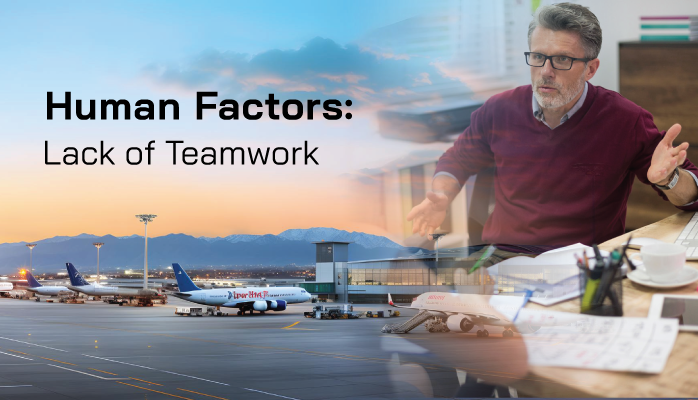Why Is Teamwork Important?

Teamwork is a word used often in the workplace. We’ve all heard that it’s important to work together. Why cover the same ground again?
Lack of teamwork can have serious safety consequences. In aviation, our jobs affect others. Even when we seem to be working on our own, our work ties into other parts of the operation.
Safety is part of being a good teammate and teamwork plays a key role in safety. As such, we all take on responsibility for being good teammates and keeping each other safe.
If we work in a vacuum without regard for others, we can contribute to unsafe conditions. For the sake of our teams, we must work together to keep everyone safe.
Related Aviation Human Factors Articles
- Let’s Talk Human Factors - Origin of Dirty Dozen
- Let’s Talk Human Factors - Lack of Communication
- Let’s Talk Human Factors: Distraction Is #4 of the Dirty Dozen
Train Effective Teams
Teamwork rarely arises spontaneously. Management should keep this in mind and work consciously to encourage and support teamwork.
Emphasize the benefits of teamwork. Working together improves safety, productivity, and morale. Make sure that you are a team player. By practicing what you preach, employees are more likely to buy in.
Take time to train employees on how to be good teammates. Encourage listening and interpersonal skills.
These aren't inherent skills that people know from instinct. Interpersonal skills are often not taught in schools.
Make sure to include those whose contributions otherwise might go unnoticed. If one member of your team usually works alone, make sure they're included when the team succeeds.
Leadership at Every Level
Management support is an important component in creating a team mentality. If you’re a worker, it can be frustrating when your team doesn’t work together. Here are a few things everyone can do to build teamwork.
Support your manager’s efforts to build teamwork and camaraderie. Set a good example for the others on your team by engaging in training.
Ask lots of questions to make sure you understand the goals of your team. When you understand them well, you can help your teammates to understand them as well. Make sure to know the ground rules, processes, and procedures. Knowing these will help to avoid conflict at critical moments.
Aside from building a good team, it’s your responsibility as a teammate to speak up if you see something out of place. A good teammate keeps their team safe.
Also, speak up if you see the potential for improvement. You’re on the front lines every day, so you may see something that supervisors and managers overlook.
Attitudes Can Make or Break Teams
It seems cliche to say, but attitudes affect your teams. No matter what role you play on the team, it is important to keep a positive attitude.
When people on your team are negative or reluctant, it shows in their work. It also drags down the rest of the team.
A positive, can-do attitude is contagious as well. Do your part, keep your commitments, and be a team player. Share in the victories and the losses as a team.
What ways of building teamwork have been effective in your organization? Share with us in the comments below!
Last updated July 2025.






